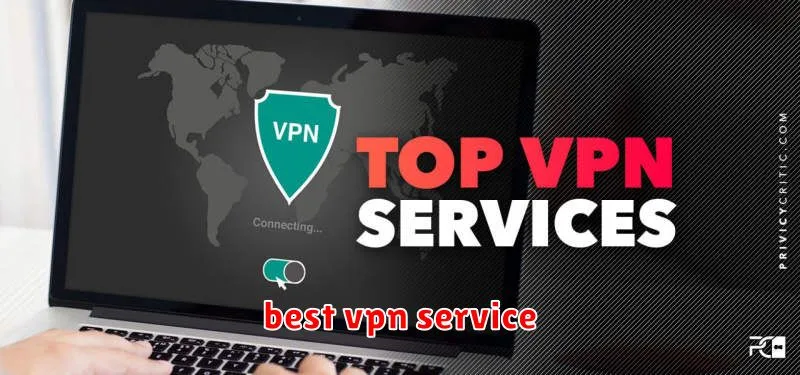In the digital age, our online privacy and security are under constant threat. From data breaches to government surveillance, our personal information is vulnerable. A VPN (Virtual Private Network) is an essential tool for safeguarding your online activity. A VPN encrypts your internet traffic and routes it through a secure server, making it nearly impossible for third parties to track your online movements. By masking your IP address, a VPN also lets you access geo-restricted content from anywhere in the world.
With so many VPN services available, choosing the right one can be overwhelming. This article will guide you through the best VPN services for 2024, taking into account factors like speed, security, privacy, and user-friendliness. We’ll help you find the perfect VPN to unlock the freedom and protection you deserve in the digital age.
Why Use a VPN in 2024?
In today’s digital age, where our online activities are constantly monitored and tracked, using a VPN is more crucial than ever. A VPN, or Virtual Private Network, acts as a secure tunnel that encrypts your internet traffic and masks your IP address, providing numerous benefits for privacy and security in 2024.
Enhanced Privacy: VPNs protect your online privacy by hiding your true location and internet activity from prying eyes, including your internet service provider (ISP), advertisers, and government agencies.
Improved Security: VPNs encrypt your data, making it virtually impossible for hackers to intercept and steal your sensitive information. This is especially important when using public Wi-Fi networks, which are often vulnerable to security breaches.
Bypass Geo-restrictions: VPNs allow you to access content that is geographically restricted, such as streaming services or websites, by connecting to servers in different countries. This enables you to enjoy a wider range of entertainment options and online content.
Protection Against Online Tracking: VPNs prevent advertisers and other entities from tracking your browsing activity and building a profile of your online behavior. This helps to safeguard your privacy and prevent targeted advertising.
Increased Anonymity: VPNs make it difficult to identify and track your online activities, providing a layer of anonymity that can be valuable for individuals who value their privacy. This is especially important for journalists, activists, and whistleblowers who may be at risk of surveillance.
In conclusion, using a VPN in 2024 is essential for anyone who values their online privacy and security. With the growing threats to our digital lives, a VPN offers a vital layer of protection, enabling us to browse, stream, and communicate online with confidence.
Essential Features of Top-Tier VPNs
Navigating the digital landscape can be perilous without the right tools. A top-tier VPN is your shield, protecting your online activity and ensuring your privacy. But what exactly makes a VPN exceptional? Let’s delve into the essential features that set the best VPNs apart.
Strong Encryption
The cornerstone of any VPN is its encryption strength. Look for VPNs that use industry-standard AES-256 encryption. This military-grade encryption makes it virtually impossible for unauthorized parties to intercept and decipher your data.
Global Server Network
A vast server network provides greater flexibility and anonymity. Opt for VPNs with servers in numerous locations across the globe. This allows you to mask your IP address and access geo-restricted content from different regions.
No-Log Policy
Your privacy is paramount. Choose a VPN with a strict no-logging policy. This means the VPN provider doesn’t store any data about your browsing activities, ensuring your online anonymity remains intact.
Kill Switch
A kill switch is a crucial safety feature. If your VPN connection drops, the kill switch immediately blocks your internet access, preventing any data leaks. This ensures your privacy is protected even during temporary connection interruptions.
Speed and Performance
A top-tier VPN shouldn’t sacrifice speed for security. Look for VPNs that offer fast connection speeds and minimal latency. This ensures smooth streaming, online gaming, and overall browsing experience.
Customer Support
Reliable customer support is vital. Choose a VPN with responsive and knowledgeable support staff. This ensures you can get help quickly and efficiently if you encounter any issues.
In conclusion, these essential features are the hallmarks of a top-tier VPN. By prioritizing these features, you can safeguard your online privacy and security, enabling you to navigate the digital landscape with confidence.
Evaluating VPN Protocols and Encryption
Choosing the right VPN service is crucial for safeguarding your online privacy and security in today’s digital landscape. While factors like speed and server locations are important, it’s equally essential to consider the VPN protocol and encryption used by the service. These elements determine how effectively your data is protected from prying eyes and potential cyber threats.
VPN protocols are the communication standards that govern how data is transmitted between your device and the VPN server. Some popular protocols include OpenVPN, WireGuard, IKEv2/IPsec, and L2TP/IPsec. Each protocol offers different levels of security, speed, and compatibility. OpenVPN is widely regarded as a robust and secure option, known for its strong encryption and open-source nature. WireGuard, a newer protocol, is gaining popularity due to its speed and efficiency. IKEv2/IPsec provides a balance between security and performance, while L2TP/IPsec is generally considered less secure but offers wider compatibility.
Encryption is the process of converting your data into an unreadable format, making it incomprehensible to unauthorized parties. VPNs use encryption algorithms to protect your data during transmission. The strength of the encryption algorithm is measured by the key length, with longer keys generally considered more secure. Look for VPNs that utilize industry-standard AES-256 encryption, considered virtually unbreakable with current technology.
When evaluating VPN protocols and encryption, consider the following factors:
- Security: Choose a protocol known for its robust security features and strong encryption algorithms.
- Speed: Some protocols are faster than others, impacting your browsing and streaming experience.
- Compatibility: Ensure the protocol is compatible with your operating system and devices.
- Transparency: Look for VPN providers that openly disclose their protocols and encryption methods.
By understanding VPN protocols and encryption, you can choose a VPN service that effectively safeguards your online activity and protects your sensitive data from unauthorized access.
Privacy Considerations: Logging Policies and Jurisdiction
When choosing a VPN service, privacy considerations are paramount. Understanding a VPN provider’s logging policies and jurisdiction is crucial to ensure your online activity remains private and secure. Logging policies refer to the type of data a VPN collects and retains. A strong VPN will have a strict no-logs policy, meaning they don’t store any user data, including browsing history, IP addresses, or timestamps.
Jurisdiction refers to the laws and regulations of the country where the VPN company is based. VPNs operating in countries with strong privacy laws and data protection regulations offer a higher level of privacy. It’s important to choose a VPN that is based in a country with robust data privacy laws and a strong commitment to user privacy.
By thoroughly examining a VPN’s logging policies and jurisdiction, you can make an informed decision about the level of privacy and security the service provides.
Speed and Performance: Impacts of VPN Usage
While VPNs offer a valuable layer of privacy and security, they can have a noticeable impact on your internet speed and overall performance. This is primarily due to the added steps involved in routing your data through a VPN server. When you use a VPN, your data travels from your device to the VPN server, where it’s encrypted and sent to its final destination. This extra hop can introduce latency, leading to slower browsing, streaming, and gaming experiences.
The extent of the speed reduction depends on several factors, including the VPN provider, server location, and the quality of your internet connection. Some VPN services boast fast speeds, while others prioritize security features over performance. Similarly, choosing a server located geographically closer to your location can minimize latency, resulting in a better experience. Lastly, a strong internet connection with high bandwidth is crucial for minimizing the impact of VPN usage on speed.
To mitigate the performance impact of VPNs, consider the following tips:
- Choose a reputable VPN provider known for fast speeds and a global server network.
- Select a server located close to your physical location for minimal latency.
- Ensure a stable internet connection with sufficient bandwidth.
- Opt for VPNs that utilize advanced encryption protocols for faster performance.
By following these tips, you can enjoy the benefits of VPNs without sacrificing your internet speed and performance.
Choosing the Right VPN for Your Needs
With the digital world constantly evolving, it’s more important than ever to prioritize your online privacy and security. A Virtual Private Network (VPN) can be your shield against cyber threats, allowing you to browse the internet anonymously and securely. But with numerous options available, choosing the right VPN can seem overwhelming. This guide breaks down the key factors to consider when selecting a VPN that perfectly suits your needs.
1. Privacy Policy and Logging Practices: Before diving into any VPN, thoroughly examine its privacy policy. Look for a strict no-logs policy, ensuring that the VPN doesn’t store your browsing history, IP address, or other sensitive data. A reputable VPN should be transparent about its logging practices.
2. Security Features: A strong VPN should boast advanced security features like encryption (preferably AES-256), a kill switch (disconnecting internet access if the VPN connection drops), and a leak protection mechanism (preventing your real IP address from being exposed).
3. Server Network and Locations: The number and location of VPN servers play a significant role in performance and accessibility. A wider server network grants access to geo-restricted content and faster speeds. Consider a VPN with servers in countries relevant to your needs.
4. Compatibility and Device Support: Ensure the VPN is compatible with your devices. Look for support for major operating systems like Windows, macOS, iOS, Android, and routers.
5. Speed and Performance: A slow VPN can significantly impact your online experience. Consider VPNs known for their fast connection speeds, especially if you’re planning to stream video content or participate in online gaming.
6. Customer Support: Access to reliable customer support is crucial. Look for VPNs with responsive live chat, email support, or a comprehensive knowledge base.
7. Pricing and Subscription Plans: VPNs offer various pricing plans, from monthly to annual subscriptions. Evaluate the cost against the features and benefits offered. Consider a free trial or money-back guarantee to test the service before committing.
By carefully considering these factors, you can select a VPN that effectively protects your privacy, safeguards your online activities, and enhances your digital experience.
Top VPN Services for Streaming and Entertainment
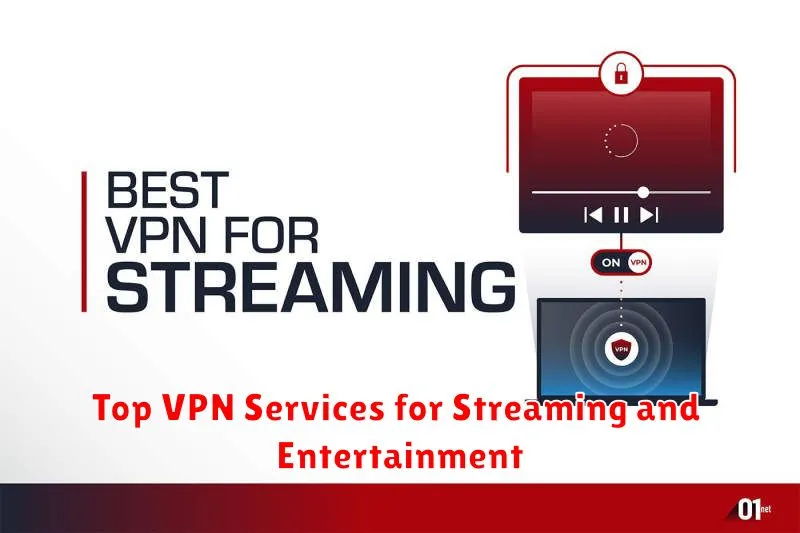
In today’s digital age, privacy and security are paramount. A Virtual Private Network (VPN) can be your ultimate shield, encrypting your internet traffic and masking your location, giving you peace of mind while accessing online content. But when it comes to streaming and entertainment, not all VPNs are created equal. Some excel at bypassing geo-restrictions and unlocking a wider world of content, while others prioritize speed and reliability for seamless streaming. Here are some of the top VPN services that stand out for streaming and entertainment:
1. ExpressVPN
Renowned for its lightning-fast speeds and vast server network, ExpressVPN is a top choice for streaming enthusiasts. It seamlessly unlocks content from popular platforms like Netflix, BBC iPlayer, Hulu, and Disney+, ensuring a buffer-free experience. Additionally, its robust security features, including 256-bit AES encryption and a strict no-logs policy, provide a secure and private online environment.
2. NordVPN
NordVPN boasts a massive server network spanning over 60 countries, making it an excellent option for accessing geographically restricted content. With its specialized servers optimized for streaming, you can enjoy smooth playback without interruptions. NordVPN also prioritizes security and privacy, offering double VPN encryption and a kill switch to safeguard your data.
3. CyberGhost VPN
CyberGhost VPN is known for its user-friendly interface and dedicated streaming servers for platforms like Netflix, Amazon Prime Video, and BBC iPlayer. Its extensive server network and advanced security features ensure reliable access to your favorite content while protecting your privacy. With a generous 45-day money-back guarantee, you can try CyberGhost risk-free.
4. Surfshark
Surfshark is a budget-friendly VPN that doesn’t compromise on quality. It offers unlimited simultaneous connections, allowing you to protect all your devices at once. Its fast speeds and strong security protocols make it ideal for streaming, gaming, and other online activities. Surfshark also boasts a 30-day money-back guarantee, giving you ample time to test its capabilities.
5. Private Internet Access (PIA)
PIA is a popular choice for privacy-conscious users. Its strict no-logs policy and advanced security features provide a secure and anonymous browsing experience. With a large server network and dedicated streaming servers, PIA allows you to unblock content from various platforms and enjoy seamless streaming.
Ultimately, the best VPN for streaming and entertainment depends on your individual needs and preferences. Consider factors such as speed, server network, security features, and price when choosing a VPN. All the services mentioned above are reliable and offer excellent features for unlocking content and enhancing your online experience. So, choose the one that best suits your requirements and enjoy a world of entertainment without boundaries!
Best VPNs for Secure Browsing and Online Banking
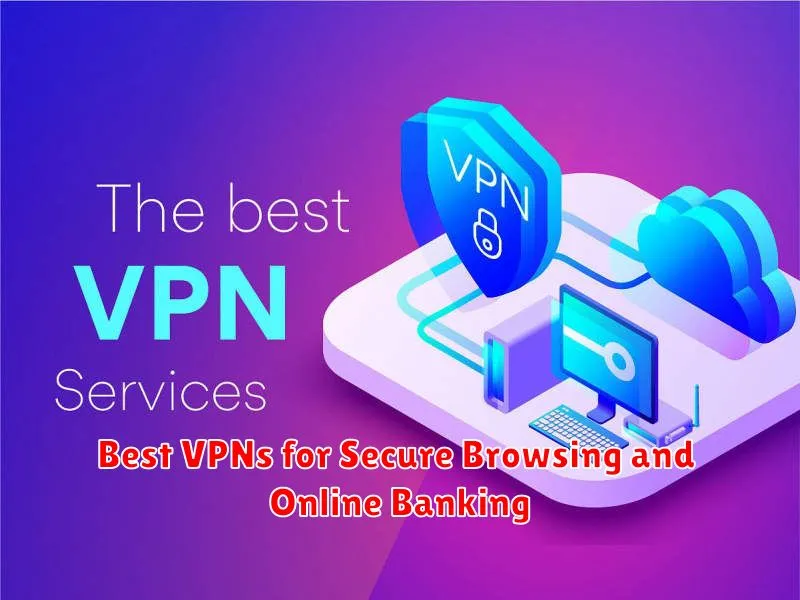
In today’s digital age, our online privacy and security are paramount. With cyber threats becoming increasingly sophisticated, it’s crucial to protect our sensitive information while browsing the web and engaging in online banking. A Virtual Private Network (VPN) can be your trusted ally in this fight, encrypting your internet traffic and masking your IP address, making it harder for hackers and snoopers to intercept your data.
When it comes to secure browsing and online banking, choosing the right VPN is critical. Here are some of the best VPN services that prioritize security, privacy, and user-friendliness:
1. NordVPN
NordVPN is a popular choice for secure browsing and online banking. It boasts a robust network of servers in over 60 countries, strong encryption protocols, and a strict no-logs policy. NordVPN also offers features like double VPN, Onion over VPN, and dedicated IP addresses, further enhancing your security.
2. ExpressVPN
ExpressVPN is another top-rated VPN known for its exceptional speed and reliability. It provides a vast server network, excellent customer support, and a user-friendly interface. ExpressVPN’s advanced security features, including 256-bit encryption and a kill switch, ensure your online activities remain private.
3. Surfshark
Surfshark is a budget-friendly VPN that doesn’t compromise on security. It offers unlimited simultaneous connections, making it ideal for families or individuals with multiple devices. Surfshark’s strong security features, including AES-256 encryption, a kill switch, and a no-logs policy, safeguard your online transactions.
4. CyberGhost
CyberGhost is renowned for its user-friendly interface and dedicated servers for streaming and torrenting. It offers a wide range of security features, including 256-bit encryption, a kill switch, and a strict no-logs policy. CyberGhost is a solid choice for both browsing and online banking.
5. ProtonVPN
ProtonVPN is a privacy-focused VPN that prioritizes security and anonymity. It offers a free plan with limited features, as well as paid plans with enhanced security and performance. ProtonVPN’s strong encryption, no-logs policy, and secure servers make it a reliable choice for online banking.
When selecting a VPN for secure browsing and online banking, consider factors such as:
- Encryption strength: Look for VPNs that use strong encryption protocols like AES-256.
- No-logs policy: Ensure the VPN provider doesn’t store any logs of your browsing activity.
- Kill switch: A kill switch disconnects your internet connection if the VPN connection drops, preventing leaks of your data.
- Server network: Choose a VPN with a large server network for reliable connections and better speed.
- Customer support: Look for a VPN provider with responsive and helpful customer support.
By investing in a reputable VPN service, you can enhance your online privacy and security, giving you peace of mind while browsing the web and managing your finances online. Remember to research and choose a VPN that aligns with your needs and budget. Stay safe and secure in the digital age!
VPNs for Bypassing Censorship and Geo-Restrictions
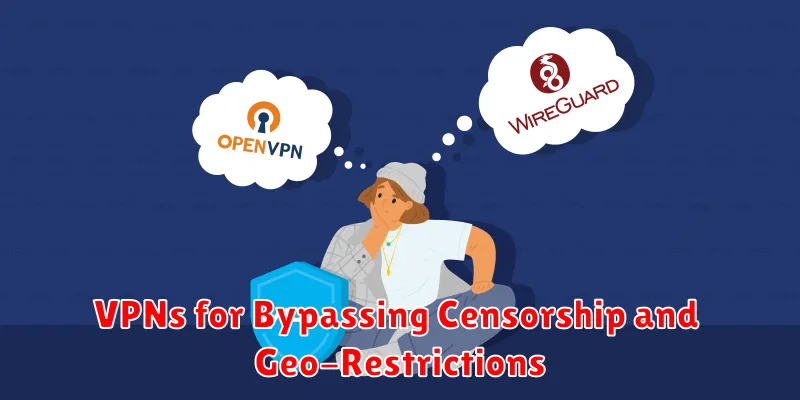
In today’s digital landscape, privacy and security are paramount. Governments and corporations are increasingly encroaching on our online freedom, employing censorship and geo-restrictions to control access to information and content. This is where VPNs come into play. VPNs, or Virtual Private Networks, act as a tunnel between your device and the internet, encrypting your data and masking your IP address. This allows you to bypass censorship and access content that is otherwise restricted based on your location.
Bypassing censorship is crucial for individuals living in countries with strict internet regulations. With a VPN, you can access blocked websites, social media platforms, and news sources, ensuring freedom of information and expression. Furthermore, VPNs are invaluable for accessing geo-restricted content such as streaming services, online games, and websites. Imagine wanting to watch a popular show on Netflix but being unable to do so because of your location. A VPN can solve this issue by making it appear as if you are browsing from a different country.
In conclusion, VPNs are powerful tools that empower users to reclaim their online freedom. They provide a vital layer of protection against censorship and geo-restrictions, enabling access to a wider range of information and content. Choosing the right VPN is essential, so consider factors like security features, server network, speed, and pricing. With a reliable VPN, you can enjoy a truly private and secure online experience, free from limitations and censorship.
Protecting Your Mobile Devices with VPNs
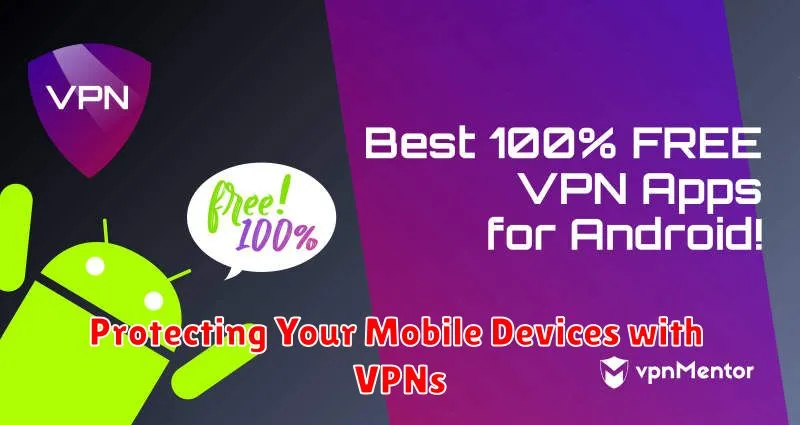
In today’s digital age, our mobile devices are extensions of ourselves, holding our most sensitive information. From banking apps to social media accounts, these devices are vulnerable to cyber threats. Fortunately, VPNs (Virtual Private Networks) offer a powerful layer of protection, safeguarding your data and privacy while browsing on the go.
A VPN works by encrypting your internet traffic and routing it through a secure server in another location. This creates a private tunnel, shielding your online activity from prying eyes and making it difficult for hackers or malicious entities to intercept your data.
Using a VPN on your mobile device provides several essential benefits:
- Enhanced Privacy: VPNs mask your IP address, making it harder for websites and advertisers to track your browsing history and online behavior.
- Data Security: Encryption ensures that your data remains private and secure, even when connected to public Wi-Fi networks.
- Geo-Blocking Circumvention: VPNs allow you to access content restricted to specific regions, such as streaming services or websites that are blocked in your country.
- Protection from Cyber Threats: VPNs can help protect your device from malware and other online threats by encrypting your traffic and preventing malicious websites from accessing your data.
With a plethora of VPN providers available, choosing the right one can be overwhelming. Consider factors like speed, security features, privacy policy, server network, and customer support when making your selection.
Remember, protecting your mobile devices is crucial in today’s digital world. By using a reliable VPN, you can enjoy the benefits of a secure and private online experience, whether you’re at home, on the go, or connected to public Wi-Fi.
The Future of VPNs: Trends and Innovations
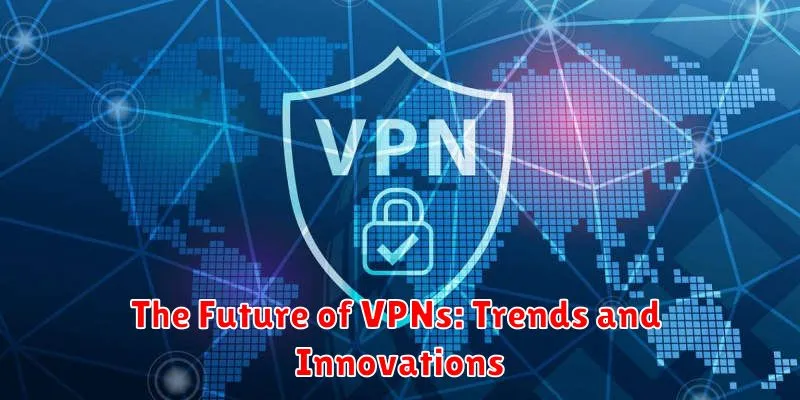
VPNs have become an essential tool for online privacy and security, and their importance is only growing in the digital age. As technology evolves, so too do the trends and innovations shaping the future of VPNs.
One of the most prominent trends is the increasing focus on privacy-focused VPNs. This means VPN providers are prioritizing user privacy by offering features like no-logging policies, strong encryption protocols, and anonymous payment options. This trend is driven by growing concerns about data breaches and government surveillance, as well as the increasing value users place on their online privacy.
Another key innovation is the rise of VPN-integrated browsers. These browsers offer built-in VPN functionality, making it easier for users to protect their online activity without needing separate software. This integration streamlines the user experience and offers a more convenient way to access the internet securely.
The future of VPNs also holds exciting developments in artificial intelligence (AI). AI can be used to improve VPN performance, including by optimizing server selection, detecting and mitigating threats, and enhancing user experience through personalized recommendations. This integration of AI will likely play a significant role in shaping the future of VPN technology.
Finally, multi-device compatibility will continue to be a crucial factor. As users rely on multiple devices, including smartphones, tablets, laptops, and smart TVs, VPNs will need to offer seamless integration across all platforms. This will ensure users can access the same level of privacy and security regardless of their device.
In conclusion, the future of VPNs is bright, with exciting trends and innovations shaping the way we access and protect ourselves online. As privacy and security concerns continue to grow, VPNs will play an increasingly vital role in securing our digital lives. By embracing these trends and innovations, VPN providers can continue to enhance their offerings and ensure users have access to the most reliable and secure VPN services available.

